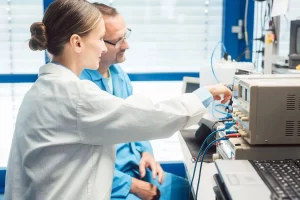In a time set apart by increasing worries about environmental change and ecological debasement, the integration of technology and sustainability has turned into an essential road for addressing worldwide difficulties. The digital age has not just changed how we impart and get the information but has likewise birthed another flood of eco-accommodating tech innovation. These innovations are reshaping industries, minimizing natural footprints, and spearheading a sustainable future for a long time into the future.
Environmentally friendly power and Shrewd Matrices
Environmentally friendly power sources, for example, sun-oriented, wind, and hydroelectric power, have become the dominant focal point in the journey for sustainable energy arrangements. Headways in sunlight-based charger proficiency, wind turbine plans, and energy storage frameworks have made these technologies more open and practical.

Energy-Productive Computing
The outstanding development of information-driven technologies and distributed computing has raised worries about their energy utilization. Notwithstanding, eco-accommodating tech arrangements have arisen to handle this issue. Energy-effective processors, high-level cooling techniques, and improved server farms are revolutionizing the IT area.
Savvy Urban Communities and Sustainable Infrastructure
As the worldwide populace floats towards metropolitan focuses, the idea of savvy urban areas has gained footing. These urban areas leverage information and technology to upgrade metropolitan living while at the same time minimizing natural effects. Intelligent transportation frameworks, proficient waste management, and sensor-based infrastructure monitoring are parts of these eco-accommodating metropolitan conditions.
Roundabout Economy and Sustainable Manufacturing
Eco-accommodating tech innovations stretch out to the core of manufacturing processes. The roundabout economy model accentuates recycling, reusing, and reducing waste. Technological leap forwards, for example, 3D printing, which considers exact material usage and progressions in material sciences are enabling industries to take on additional sustainable practices.
Accuracy Horticulture and Food Tech
The horticultural area faces the test of feeding a growing worldwide populace while minimizing natural effects. Accuracy horticulture combines satellite imagery, drones, and IoT gadgets to improve crop management. By delivering water, manures, and pesticides definitively where and when they are required, ranchers can decrease asset waste and increase crop yields.
Squander Management and Contamination Decrease
Innovative technologies are tackling the issue of waste management and contamination head-on. From cutting-edge recycling processes that can deal with complex materials to man-made intelligence-fueled sensors that screen air and water quality, these arrangements are fundamental in reducing the weight of biological systems.
Green Versatility and Electric Transportation
Transportation is a huge supporter of fossil fuel byproducts. The ascent of electric vehicles (EVs) fueled by clean energy sources is transforming the auto industry. Besides, the improvement of EV charging infrastructure and the integration of independent driving technologies are paving the way for a more sustainable and effective transportation framework.












